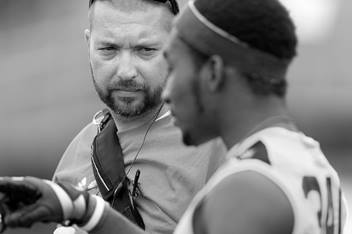Scapular Dyskinesis
Scapular rotation is important for proper shoulder function. The Scapula (shoulder blade) also serves as a stable base for rotator cuff activation and functioning. Any bony or soft tissue injury around the shoulder can alter the roles of the scapula in motion or at rest.
Scapular dyskinesis (which may also be referred to as SICK scapula syndrome) is an alteration or deviation in the normal resting or active position of the scapula during shoulder movement. For most people, the scapula moves in abnormal ways due to the repetitive use of the shoulder. These changes, though sometimes asymptomatic, can increase the chances of injury.
Common Signs and Symptoms
- Pain and or tenderness around the scapula when using the arm overhead or carrying heavy objects with the arm at the side
- Snapping or popping sensation around the scapula with shoulder movement
- Loss of strength with shoulder and arm use.
- Asymmetrical posture (effected side usually sits lower)
- Winging of the scapula
- Instability of the shoulder (feels like it moves out of place)
Causes
- Muscle weakness or imbalance
- Poor overhead mechanics
- Overuse or repetitive motions such as throwing or serving
Risk Increases with
Shoulder Injuries
Access additional causes, symptoms and treatment information.
- Sports involving overhead activity
- Increase in throwing velocity
- Loose joints
- Previous or repeat shoulder injuries
- Poor physical conditioning (strength and flexibility)
- Kyphosis (excess curvature in upper back)
Preventive Measures
- Proper warm up before throwing or overhead activities including stretching.
- Obey proper age and league pitch counts and guidelines.
- Instill and practice proper throwing mechanics at a young age.
Expected Outcome
- Most abnormalities in the scapular motion or scapular position can be improved through rehabilitation exercises, often with a physical therapist or athletic trainer.
- Generally, therapy may last anywhere from 4-8 weeks depending on the severity of the injury.
Possible Complications
- Prolonged healing time if not appropriately treated or given adequate time to heal
- Chronic inflammation or impingement of rotator cuff muscles, causing persistent pain with activity that may progress to constant pain (with or without activity)
- Shoulder stiffness or loss of motion
- Rotator cuff tendon tear(s)
- Recurrence of symptoms if activity is resumed too soon, with overuse, or when using poor technique
General Treatment Considerations
Initial treatment consists of medication and ice to relieve the pain, stretching and strengthening exercises, and modification of the activity that initially caused the problem. It may be necessary to take some time off initially after the diagnosis to allow time for the shoulder to rest. Often times, referral to a physical therapist or athletic trainer may be recommended.
Medication
- Non-steroidal anti-inflammatory medications, such as ibuprofen, are often recommended. Take these as directed by your physician. Contact your physician immediately if any bleeding, stomach upset, or signs of an allergic reaction occur.
Heat and Cold
- Cold is used to relieve pain and reduce inflammation. Cold should be applied for 15 to 20 minutes every 2 to 3 hours for inflammation and pain after injury. Use ice packs or an ice massage.
- Heat may be used before performing stretching and strengthening activities prescribed by your physician, physical therapist, or athletic trainer. Use a heat pack or a warm soak.
Notify your doctor if
- Pain, tenderness, or swelling worsens despite treatment
- You experience numbness or coldness in the arm.
- Blue, gray, or dusky color appears in the fingernails.
- New, unexplained symptoms develop.
Consult your primary care physician for more serious injuries that do not respond to basic first aid. As an added resource, the staff at Nationwide Children’s Hospital Sports Medicine is available to diagnose and treat sports-related injuries for youth or adolescent athletes. Services are available in multiple locations. To make an appointment, call (614) 355-6000 or schedule an appointment online.



